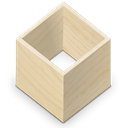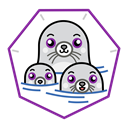Top rkt Alternatives: Exploring Container Runtimes Beyond CoreOS's rkt
rkt, developed by the CoreOS team, was a significant player in the container ecosystem. Described as a next-generation container manager for Linux clusters, rkt prioritized security, simplicity, and composability. It was designed to integrate seamlessly with existing init systems like systemd and orchestration environments like Kubernetes, implementing the App Container (appc) format while also supporting Docker images. Despite its innovative design and open-source nature, often, the landscape of containerization evolves, and users look for alternatives that might better suit their current needs, offer broader platform support, or provide a different set of features. This article delves into the best rkt alternatives available today.
Top rkt Alternatives
Whether you're seeking broader ecosystem support, different architectural approaches, or specific feature sets, these alternatives offer compelling reasons to consider them over rkt.

Docker
Docker is an enterprise-focused container platform renowned for building, sharing, and running applications. As a widely adopted and mature platform, it offers extensive container virtualization, a comprehensive ecosystem, and supports Freemium, paid, Open Source, Mac, Windows, Linux, Web, and Self-Hosted environments, making it a powerful rkt alternative, especially for those needing broad platform compatibility and a vast community.

Flatpak
Flatpak simplifies the distribution of applications on Linux, addressing the pain points of varying distributions and library versions. It's an Open Source, Free platform for Linux that provides containerization, cross-platform capabilities, multiple repository support, package installation, and sandboxing, making it an excellent rkt alternative for Linux desktop application distribution with strong isolation features.

AppImageKit
AppImageKit allows packaging desktop applications as AppImages that run on common Linux-based operating systems like RHEL, CentOS, Ubuntu, and Fedora. It's a Free, Open Source solution for Linux users looking for a straightforward way to distribute portable applications, serving as a simpler, more direct rkt alternative for desktop software deployment without complex container orchestration.

Singularity
Singularity is a container solution specifically designed for High-Performance Computing (HPC), scientific, and compute farm environments. It focuses on building reproducible software stacks and running them efficiently. This Free, Open Source solution is available for Mac, Windows, and Linux, offering single-file containers, making it a robust rkt alternative for scientific and research communities needing reproducible environments.

Podman
Podman is a daemonless container runtime for managing containers, pods, and container images. It's intended as a counterpart to CRI-O for low-level debugging and offers a similar command-line interface to Docker. Podman is Free and Open Source, primarily for Linux, providing a lightweight and secure container solution without a background daemon, making it a compelling rkt alternative for those prioritizing simplicity and direct control.

Chef Habitat
Chef Habitat is an open-source software that creates platform-independent build artifacts and provides built-in deployment and management capabilities. It supports Free, Open Source, Mac, Windows, and Linux platforms, offering program launchers, automated deployment, containerization, and container orchestration. Chef Habitat stands out as an rkt alternative for teams seeking comprehensive application automation from build to deployment across various environments.

Dockercraft
Dockercraft offers a unique way to interact with Docker containers by visualizing and running them directly from a Minecraft environment. While niche, this Free, Open Source tool supports Mac, Windows, Linux, and Docker, offering features like container management, Docker support, and virtualization. It's a fun and interactive rkt alternative for those interested in a novel approach to container interaction, especially for educational or visual debugging purposes.

DataCol
Datacol provides a control layer on top of cloud providers (AWS/GCP), aiming to deliver a Heroku-like experience with the underlying power of Kubernetes. This Free, Open Source solution for Mac and Linux features cloud-based deployment and strong Docker support. It serves as an excellent rkt alternative for developers seeking a simplified, managed container experience in the cloud without directly managing Kubernetes complexities.
The world of containerization is vast and constantly evolving. While rkt offered a unique and secure approach, the alternatives listed above provide a range of features, platforms, and community support that might better suit your specific project or organizational needs. We encourage you to explore these options and choose the best fit for your container deployment strategy.